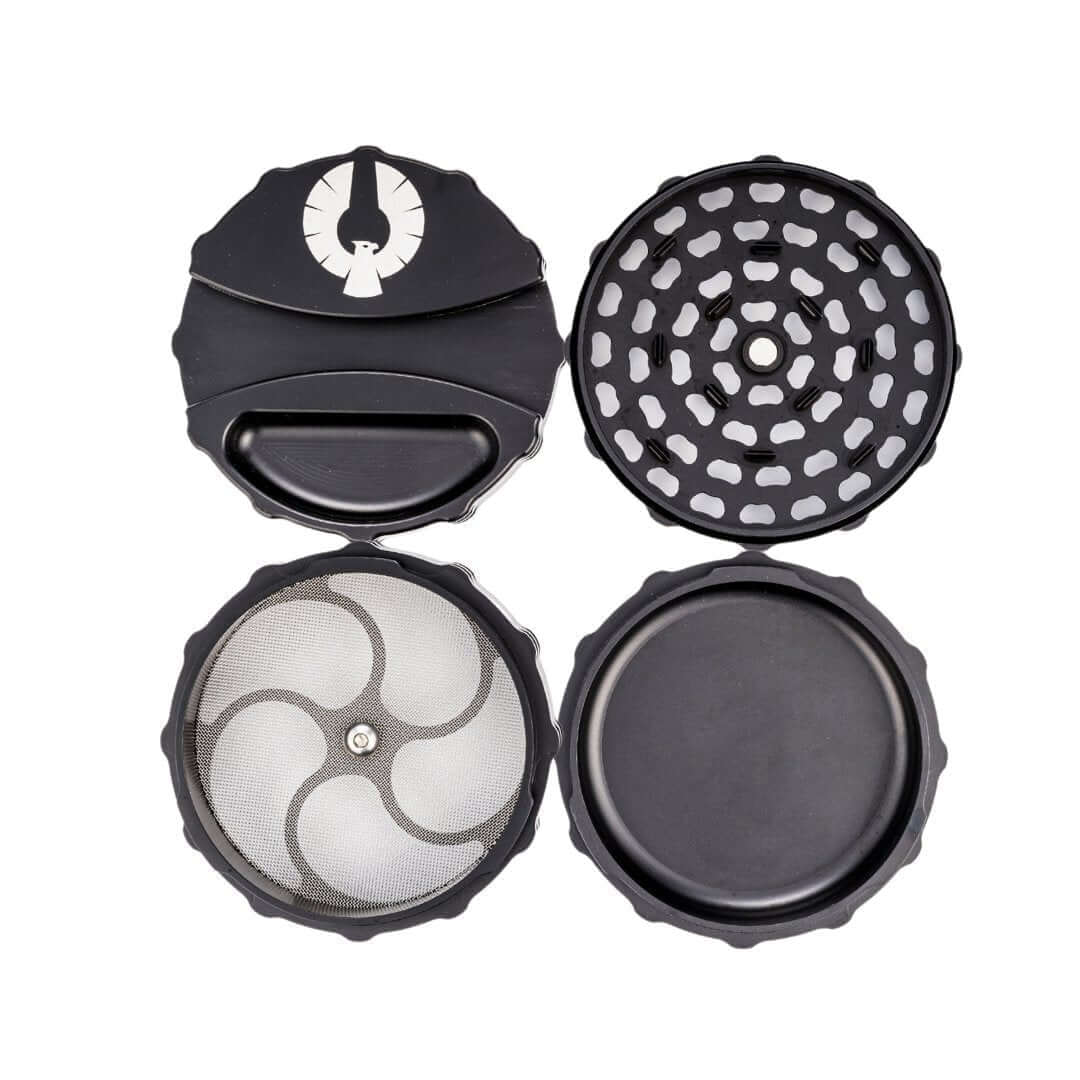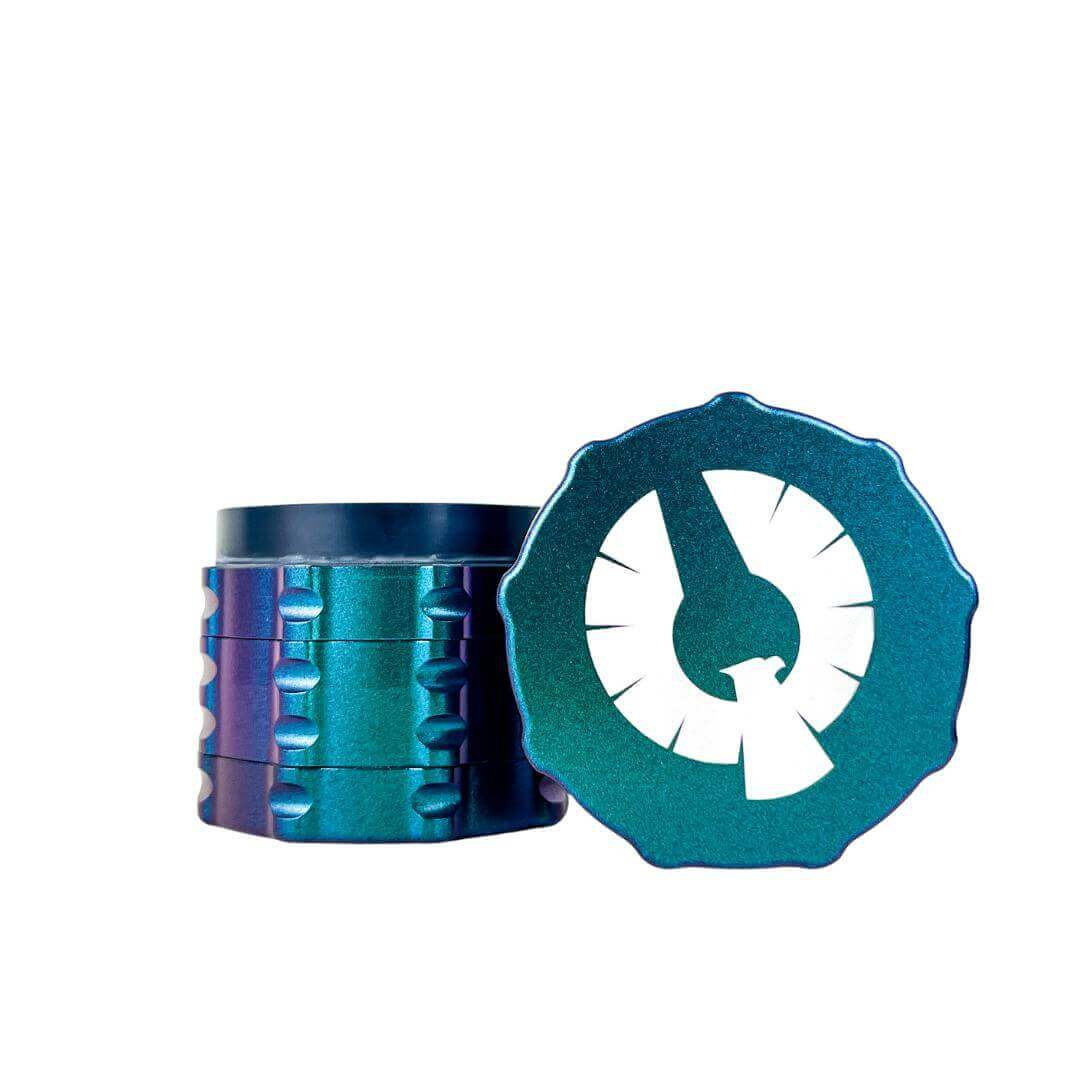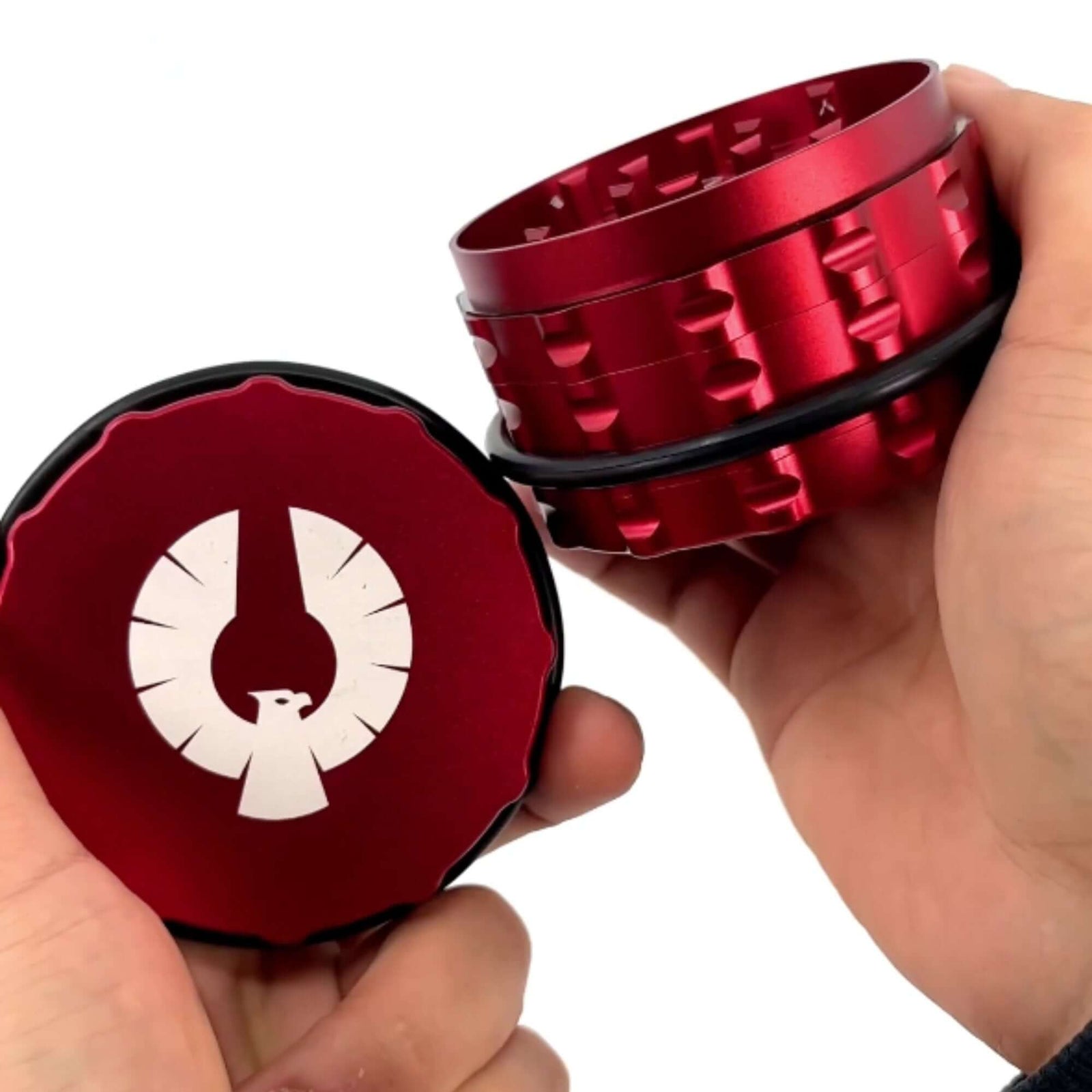Your Cart is Empty
FREE Shipping Over $100
FREE Shipping Over $100
Shop Herb Grinders
The Future of Cannabis Edibles: Trends and Innovations
October 05, 2025 5 min read
The edibles market has been experiencing an exciting evolution this year. Gone are the days when brownies and gummies dominated the weed scene. Today, innovation is driving the industry forward, offering consumers more choices, better experiences, and healthier options. Let's look at some of the latest trends in marijuana edibles, the shifting preferences of consumers, and how these products are reshaping the way we engage with weed.
High-End Eats: The Edible Evolution
For decades, edibles were synonymous with your aunt’s homemade brownies or sugar-packed gummies. While these options remain popular, the market is now buzzing with creativity. Gourmet chefs andculinary experts are infusing cannabis into high-end chocolates, artisanal baked goods, and even savory snacks. Think truffle-infused chocolates with a hint of cannabis or THC-laced macaroons that feel more at home in a Parisian patisserie than a dispensary.
These gourmet offerings cater to a growing demographic of cannabis users who value quality and sophistication. By blending their culinary artistry with precise dosing, chefs everywhere are elevating edibles into a fine dining experience. This shift is not only redefining the market but also changing public perceptions of cannabis as a whole.
Refreshing Ways to Get Lifted
One of the most notable trends in cannabis edibles is the surge in infused beverages. These drinks range from THC-infused sparkling waters to CBD craft beers and cannabis cocktails. Infused beverages offer a discreet and social way to consume cannabis, making them particularly appealing to those who may shy away from smoking or traditional edibles.
The key to their growing popularity lies in the emerging technology. Companies are now using advanced emulsification techniques to improve the bioavailability of cannabinoids in liquids. This makes for faster onset times and a more predictable experience, which are significant selling points for consumers. Whether it’s a refreshing seltzer with 5mg of THC or a calming herbal tea infused with CBD, canna coolers are carving out a niche that’s here to stay.
Infused beverages also have the added advantage of versatility. Brands are experimenting with different flavors, effects, and cannabinoid ratios to appeal to a wide range of preferences. A citrusy CBD-infused sparkling water might appeal to health-conscious consumers, while a full-bodied THC wine alternative could attract those looking for a relaxing evening drink.
Better Edibles for a Better You
Health and wellness trends are influencing the cannabis industry just as much as any other sector. Today’s consumers are looking for options that align with their healthy lifestyles, and cannabis brands are taking note. Edibles are now available in sugar-free, vegan, gluten-free, and organic varieties, assuring that your dietary restrictions and preferences are no longer a barrier.
Functional ingredients are making their way into cannabis edibles as well. Products infused with adaptogens, vitamins, or probiotics are gaining traction, offering dual benefits. An energy bar with CBD and ashwagandha might appeal to fitness fanatics, while a sleep-inducing gummy with melatonin and THC could attract those looking for a good night's rest.
Microdosing is another trend aligning with health-conscious consumption. Low-dose edibles, which contain anywhere from 1mg to 5mg of THC, are gaining popularity among consumers looking for a milder experience. These products allow for greater control over the effects, making THC products accessible to both new users and those looking for functional, everyday use.
Sustainability Is the New Buzzword
As more people become increasingly eco-conscious, sustainability is influencing purchasing decisions in the 420-friendly space. Brands are responding by prioritizing environmentally friendly practices, from sourcing organic ingredients to using biodegradable or recyclable packaging.
Innovative companies are even finding ways to minimize waste in the production process. Some are using byproducts from cannabis cultivation, like hemp seed oil, in their edible recipes. Others are adopting closed-loop systems to guarantee that no part of the plant goes unused. These efforts not only appeal to eco-minded consumers but also set a new standard for the industry.
Sustainability also extends to the sourcing of ingredients. Many brands are working withlocal farms and suppliers to reduce their carbon footprint while supporting local economies. This farm-to-table approach resonates with consumers who value both quality and sustainability.
Cannabis Goes High-Tech and On Point
One of the most significant advancements in the edibles market is the use of new technology to enhance the user experience. Precise dosing is a game-changer, addressing one of the biggest pain points in traditional edibles—unpredictable highs.
Nanotechnology and microencapsulation are helping brands create edibles with consistent dosing and faster onset times. These technologies allow cannabinoids to be absorbed more efficiently, providing a more predictable and controlled experience. As a result, consumers can feel confident about their choice, whether they’re seeking relaxation, pain relief, or a recreational high.
Beyond dosing, technology is also improving the manufacturing process. Automated systems and AI-driven analytics are streamlining production, providing consistent quality across batches. This level of precision is paramount as the industry moves towards greater standardization and compliance.
Looking Ahead to Elevated Experiences
The future of edibles looks incredibly bright, with innovation showing no signs of slowing down. As the industry matures, we can expect to see even more integration of cannabis into everyday products.Infused cooking oils, condiments, and ready-to-eat meals are already on the horizon, blurring the lines between food and cannabis consumption.
Regulations are also evolving, with governments implementing clearer guidelines for packaging, labeling, and marketing. These changes aim to protect consumers and foster trust in the industry. As compliance becomes more standardized, it will likely encourage further innovation and market growth.
Another exciting prospect is the role of personalized cannabis products. Advances in genetics and biotechnology could lead to edibles tailored to individual needs, such as specific terpenes or cannabinoid profiles optimized for sleep, focus, or relaxation. This level of customization could revolutionize the way people interact with cannabis.
A Final Toast to the Future of Edibles
Cannabis edibles have come a long way from their humble beginnings. In 2025, they’re not just a way to get high; they’re a lifestyle choice, a culinary adventure, and a gateway to wellness. From gourmet chocolates and infused beverages to health-focused snacks and sustainable practices, the industry is redefining what’s possible.
As consumer preferences continue to evolve, so will the products that cater to them. The result is a dynamic market that’s reshaping how we think about weed—and that’s an exciting prospect for both enthusiasts and newcomers alike. With innovation at its core, the edibles market is poised to continue its transformation, offering a glimpse into a future where THC seamlessly integrates into daily life, culture, and wellness.
Also in The Grind

Understanding Cannabis Terpenes: Enhancing Your Experience
November 02, 2025 5 min read
Terpenes play a crucial role in the flavor and effects of cannabis, yet they’re often overlooked. This article breaks down what terpenes are, how they work with cannabinoids, and how to use them to tailor your cannabis experience. Discover the science behind the smells and effects of your favorite strains.

The Endocannabinoid System: How Cannabis Interacts with Our Bodies
October 19, 2025 2 min read
Continue Reading
The Ultimate Grinder Guide: How to Choose the Right Grinder for You
October 10, 2025 3 min read
Continue Reading








